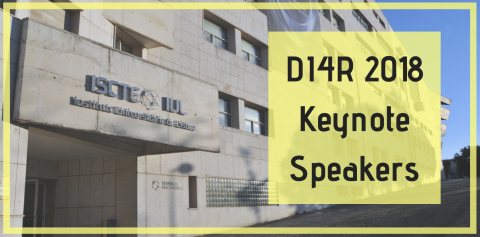
Mark van de Sanden previews two of the EOSC-hub DI4R sessions
In a few weeks, on the 9th - 11th of October, Europe’s leading e-infrastructures will be hosting the Digital Infrastructures for Research 2018. The 3rd DI4R conference will be held at the ISCTE University Institute of Lisbon, Portugal. DI4R is a very good meeting ground for people working in field of Scientific IT provisioning. EOSC-hub is well represented in the program.
I will be conveying two sessions: "Rules of Participation for EOSC” and “The Frontier of Data Discovery” and I invite anyone interested in these subjects are welcome to attend the sessions or to join me for a coffee or a drink during the social events.
World Cafe Session: Rules of Participation for EOSC
Tuesday, 9 October 16:15-17:45
The European Open Science Cloud (EOSC) brings together research and e-Infrastructure providers to provide a world-class infrastructure environment for excellent science. The aim of EOSC is to support research communities and scientists to discover, request, access and use services and resources they need to pursue their research in an open framework. The notion of Rules of Participation has been proposed to specify the conditions under which any service provider may participate in EOSC. The EOSC-hub project is approaching the topic from a service provisioning perspective, in order to set up common principles for federating service providers as part of the Hub. In this World Cafe session, we will review the current state of the discussion by presenting the work from the EOSCpilot project, the EOSC-hub project and the 2nd High Level Expert Group on EOSC. We will identify commonalities and differences between the three initiatives and discuss the next steps. Via a panel discussion, valuable feedback will be collected from the audience and from the presenters on the current status and direction taken in designing the rules.
World Cafe session: The Frontier of Data Discovery
Thursday, 11 October 11:30 - 13:00
In this session we will address the challenges to make scientific artefacts discoverable. To foster the idea of Open Science reproducibility and to stimulate the optimal use and reuse of research data, it can only be realised if data is consistently maintained according to the FAIR principles (findable, accessible, interoperable and re-usable) within a secure and trustworthy environment. Scientific communities and data providers have so far adopted very different standards to describe scientific output. This makes it difficult to extract enough content related information to enable cross-disciplinary search and to link scientific output to publications. Scientific output is stored highly distributed across different European, National and/or in regional institutional and/or community-based repositories. In this World Cafe session, we present the current state on data discovery, by presenting the work from the OpenAIRE, EUDAT and EOSC-hub project and from the angle of a community. Via a panel discussion, valuable feedback will be collected from the audience and presenters on the current status and future direction to improve data discovery.
Other EOSC-hub-related sessions at the DI4R
- EOSC Service Architecture
- Planning early, following through: Data Management Planning in the EOSC
- Shaping the EOSC service catalogue: what users need
- Digital Innovation Hubs for Industry Engagement
Mark van de Sanden is a System Architect at SURFsara and leads the technical evolution of the EOSC-hub service catalogue


